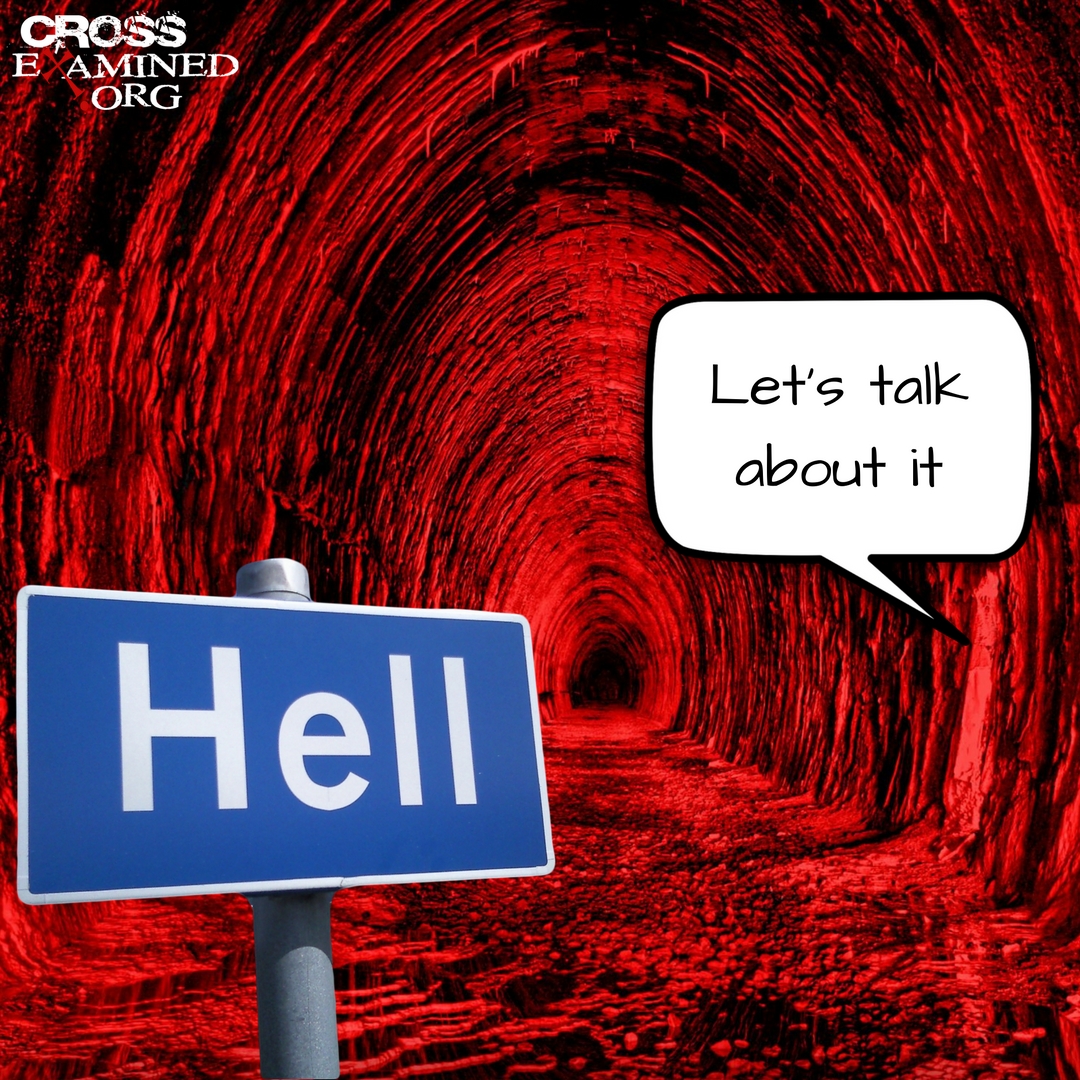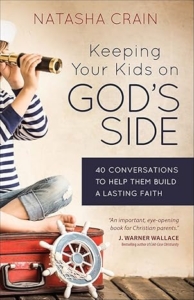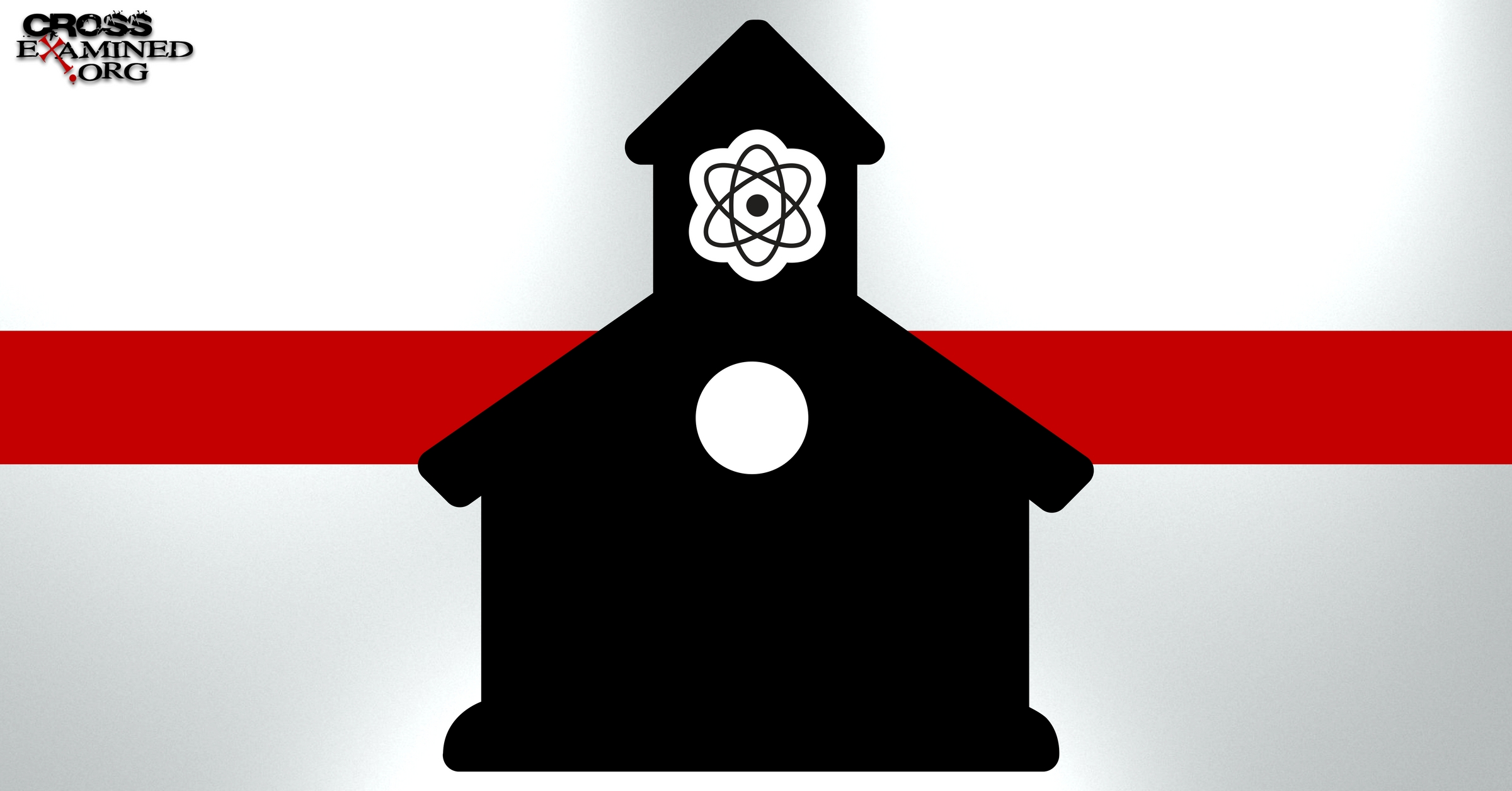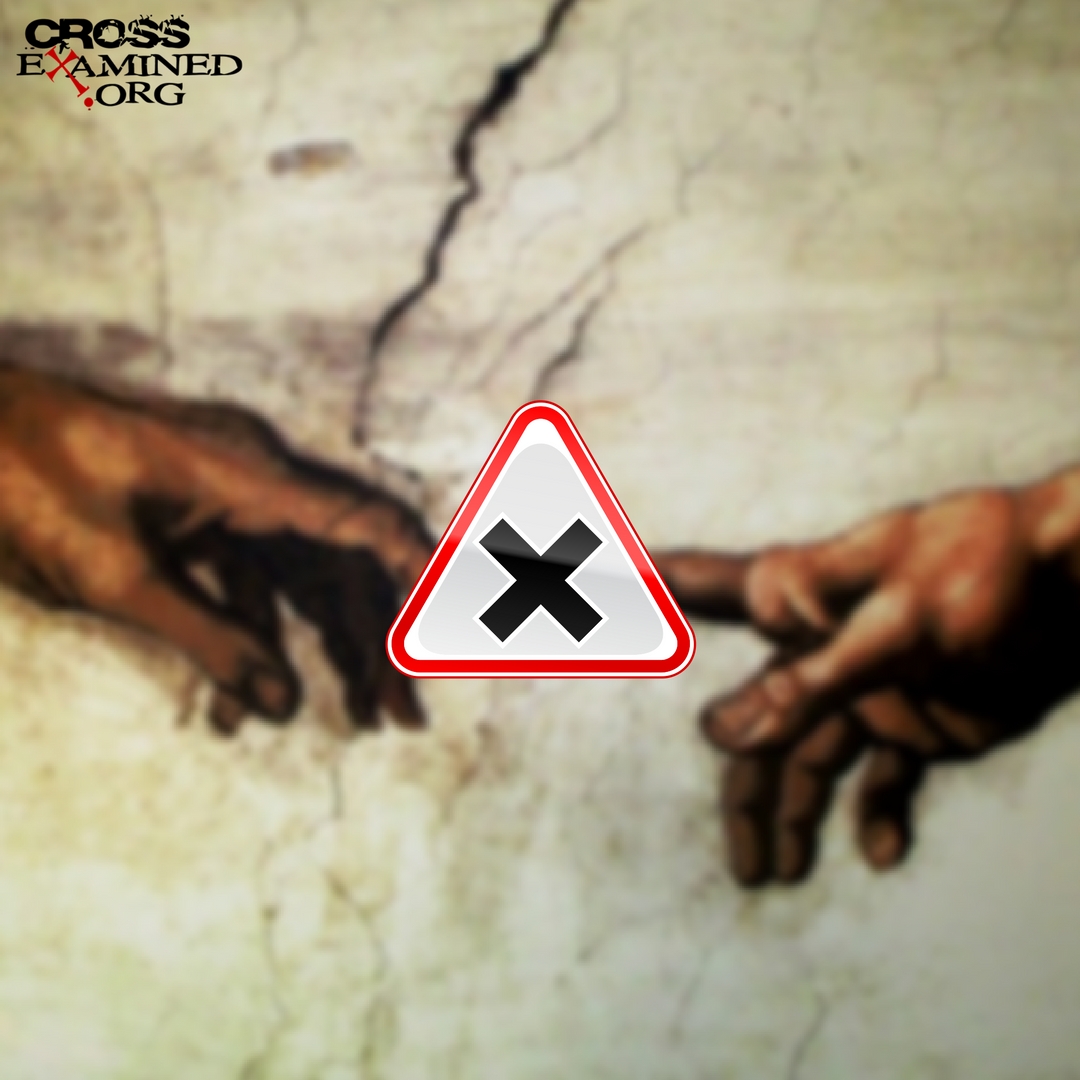How to Talk to Your Kids About Hell
The other day, I received the following comment on an old blog post about hell:
The belief in hell is sown into the hearts of many children which this blog advocates and this belief can reap major consequences. Children grow into adults. Millions of adults are on the edge of a belief in [G]od [and] needlessly suffer with the shadow of hell. They live [in] fear…What a waste…a tragedy.
Hell is one of the bedrocks of the Christian faith. I absolutely reject Christ. I work and pay taxes. I am charitable. I am [a] good father and husband. I am kind, forgiving. I like looking at the stars. Yet, without a doubt under the rules of Christianity I am doomed to be tortured for millions…billions of years. In fact, trillion[s of] years of endless agonizing pain wrap[ped] around for trillions of more years. What is my misstep? I reasoned that earth was old and books suggesting otherwise unfounded.
There are a lot of misunderstandings about Christianity and hell embedded in this comment—and those misunderstandings are quite common. Because there are so many wrong ideas about hell floating around, we as Christian parents must proactively ensure that our kids gain an accurate understanding of this difficult topic. When young people lack that understanding, they’re often quick to dismiss hell based on simple “gut reaction.” But hell is too serious a topic to leave to the discretion of our kids’ feelings. We need to guide their understanding from a biblical perspective.
In chapter 4 of my book, Keeping Your Kids on God’s Side: 40 Conversations to Help Them Build a Lasting Faith, I explain that people often unknowingly roll three layers of questions into one big objection about hell. We can help our kids understand hell much more meaningfully when we address those questions individually and sequentially:
1. Why does God need to punish anyone?
2. Who should be punished?
3. What should the nature of punishment be?
Like many people, the commenter above implicitly has objections to hell from each of these categories. In this post, we’ll look at answers to the questions using his concerns. For anonymity, we’ll call him Mr. C.
Why Does God Need to Punish Anyone?
When Mr. C says, “Millions of adults are on the edge of a belief in God and needlessly suffer with the shadow of hell,” he is assuming that Christianity isn’t true. If Christianity is true, then people should be warned about the reality of hell and have an appropriate level of concern about it. But Mr. C seems to believe that the whole idea of hell can’t possibly make sense.
A major reason he can’t make sense of hell, however, is because he misunderstands why God would need to punish someone. He believes that, in his case, it would be because he “reasoned the earth was old and books suggesting otherwise [are] unfounded.”
Rejecting the Bible is not why God punishes people. (And, as an aside, plenty of Christians believe the Earth is old.)
God punishes people because of sin.
It’s critical that our kids understand this! As I explained in chapter 4:
“The reality and seriousness of sin is ignored when we suggest there’s no need for God to punish people. To see why that’s such a problem, we need to better understand what sin is. The Bible tells us that God is perfectly good, and that He has written His moral laws on the human heart (Psalm 18:30; 1 John 1:5; Romans 2:14-15). Sin is a transgression against those laws. If God didn’t exist, there would be no sin, because there would be no moral laws to sin against. But if a perfectly good God exists, and humans violate His moral laws, we have to ask, What should God do about it? We expect a penalty for breaking human laws, so why wouldn’t we expect a penalty for breaking divine laws?”
Furthermore, God is both perfectly loving and perfectly just (Deuteronomy 32:4; Psalm 9:7-8; Psalm 33:5; Isaiah 61:8). Justness is the quality of fairly conferring deserved rewards and punishments against a standard of right and wrong. God’s justness and lovingness go hand-in-hand. Just as an earthly judge wouldn’t be loving for setting free those who break human laws, God as a heavenly judge wouldn’t be loving for setting free those who break divine laws.
If sin is real, and God is just, there must be some kind of penalty for that sin.
Who Should Be Punished?
If we’re honest, most of us can get our heads around this idea of necessary punishment—for really bad people. But garden-variety sinners? People who lie, lose their temper, and live more selfishly than they should? We think these people deserve something more like an extended time-out, not hell. In other words, it’s not that we don’t think God should punish people, but that we don’t think He should punish people like us.
Mr. C certainly feels this way, as he listed his qualifications for escaping God’s judgment: “I work and pay taxes. I am charitable. I am [a] good father and husband. I am kind, forgiving. I like looking at the stars.”
Interestingly, many murderers could even fit this description (yes, even a murderer can have moments of kindness and forgiveness—where do you draw the line?). But pretty much everyone agrees murderers deserve punishment (see point 1). So it’s clear we have to take a more objective look at who should be punished.
Romans 3:23 answers that question: “All have sinned and fall short of the glory of God.”
All.
Not one human is morally worthy of being in God’s presence. Romans 6:23 goes on to say that God has set the penalty for sin as death—which, as the law giver, He has the right to do. The combined picture of these verses is really quite simple, even if we don’t like it: Every single person is guilty of breaking God’s moral laws and He has set the penalty as death.
That’s true even if you like looking at the stars like Mr. C.
What Should the Nature of Punishment Be?
If hell only involved 100 years in jail, we’d spend a lot less time talking about it. But the traditional view that hell is an eternity spent suffering in flames? That’s where many people draw their line of “reasonableness.” In fact, most people have never thought through the logic of the first two questions in this post (why God would need to punish anyone and who should be punished) because they jump straight to the assumed nature of punishment. Those first two questions, however, are critical to understand before you can even consider the nature of hell.
The problem is, our human idea of what’s reasonable has no necessary bearing on what’s true. We simply do not have God’s perspective (Isaiah 55:8). We do know, however, that God is perfect, so His punishment is necessarily completely fair—even if we don’t have the full perspective to understand it. Because we can’t use our own idea of what’s reasonable to determine what’s true about hell, we have to look at what God has revealed about it in the Bible.
Jesus referred to hell as a terrible place to be avoided at all costs (Mark 9:48-49; Matthew 8:12; 10:28; 22:13; 13:42). The severity of hell is something all Christians agree on. There are different views, however, on what exactly the nature of hell is and how long it will last:
- Those who hold the literal view believe hell is a place of actual fire where those who reject Jesus will spend eternity. This is what Mr. C referenced in his comment.
- Those who hold the metaphorical view believe hell is an everlasting punishment of some kind, but not a literal fire. They say fire is a biblical symbol for judgment.
- Those who hold the conditionalist view believe those who reject Jesus will cease to exist. They say the many biblical references to eternal punishment refer to the punishment’sfinality, not duration.
For more on the varied Christian views of hell, I recommend the book, Four Views on Hell.
The Often Overlooked Ending
Breaking our discussions about hell into these three component questions gives kids an important framework for understanding logical and biblical connections. But we can’t overlook the critically important ending to the story—God has made a way for people to avoid hell if we accept Jesus’ sacrifice on the cross as payment for our sins! That’s the crucial other half of the picture. (For help with the rest of this conversation, see chapter 20: Why did Jesus need to die on the cross for our sins?)
As author C.S. Lewis famously said, “There are only two kinds of people in the end: those who say to God, ‘Thy will be done’ and those to whom God says, in the end, ‘Thy will be done.’”
Visit Natasha’s Blog @ ChristianMomThoughts.com
Resources for Greater Impact:



 HELL? THE TRUTH ABOUT ETERNITY
HELL? THE TRUTH ABOUT ETERNITY THE GREATEST STORIES EVER TOLD: EP 04 – THE PARABLE OF THE RICH MAN AND LAZARUS
THE GREATEST STORIES EVER TOLD: EP 04 – THE PARABLE OF THE RICH MAN AND LAZARUS









Leave a Reply
Want to join the discussion?Feel free to contribute!